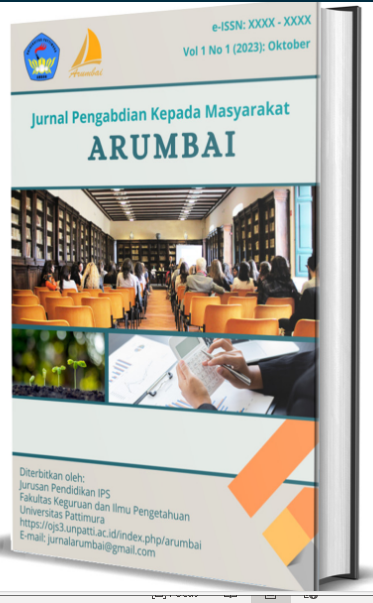Penguatan Pembelajaran Berdiferensiasi Menggunakan Fitur Barcode bagi Guru di SMA Negeri 1 Seram Bagian Barat (SBB) Provinsi Maluku
Strengthening Differentiated Learning Using Barcode Features for Teachers at SMA Negeri 1 Seram Bagian Barat (SBB), Maluku Province
Abstract
This Community Service Activity was carried out at SMA Negeri 1 Seram Bagian Barat, Maluku Province, in response to the limited capacity of teachers in implementing differentiated learning and using simple digital media in the context of the Merdeka Curriculum. The partner teachers demonstrated low understanding of teaching strategies aligned with students' learning styles, as well as limited technical skills in developing digital teaching media such as QR codes. The objective of this activity was to enhance teachers’ professional capacity through integrative training that combined differentiated learning approaches with the use of QR codes as tools for delivering instructional materials. The implementation method used was a problem-solving approach, with stages including socialization, technical training, simulation, and mentoring. The results of the activity showed a significant improvement in teachers’ understanding and skills in creating, sharing, and utilizing QR codes, as well as in designing instructional materials suited to students’ learning needs. This activity transformed teachers’ perspectives on the use of simple technology to support inclusive, efficient, and adaptive learning.
Downloads
Copyright (c) 2025 Author

This work is licensed under a Creative Commons Attribution 4.0 International License.


